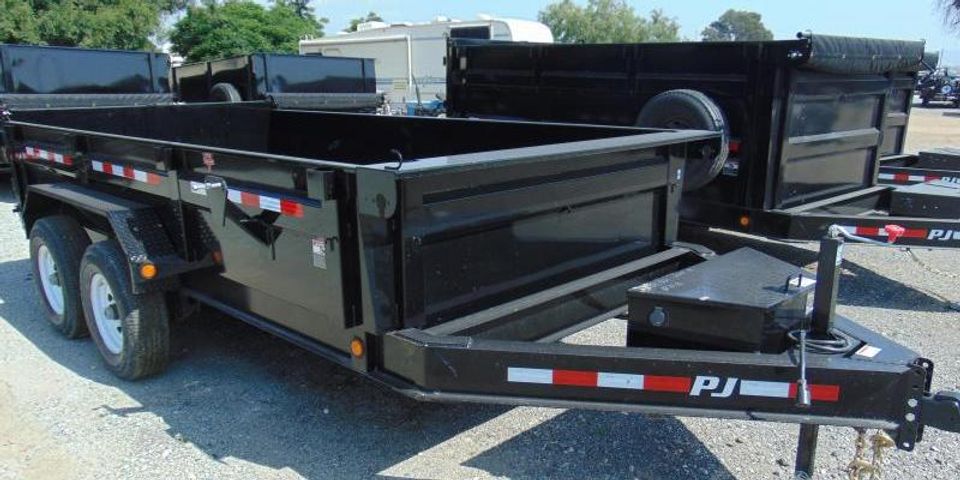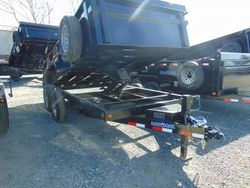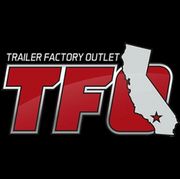
Using a dump trailer is more than simply filling it up, hauling it to a destination, and dumping it out. Just like any other piece of equipment, this type of trailer comes in a variety of options to accomplish various projects in different industries. Here is a brief guide to finding the right trailer for you.
What Factors Should You Consider?
Size
You need to know how much material you will be hauling and the weight limit of the vehicle you will be using to pull the trailer. Dump trailers range in size and can be between 8 feet and 30 feet in length. Whether you need to transport long pieces of lumber or piles of soil, you shouldn’t have a problem finding an option that will work for you.
Material
Materials used to make trailers have changed over the years, transitioning from thick, heavy steel to lightweight but high-strength alloys. Depending on your project, you may need to consider the balance between durability and efficiency. Aluminum alloys are lightweight and will reduce fuel consumption, but heavy-duty steel can take more abuse during loading and can be repaired more easily.
Framework
 Trailer frames are typically either channel steel, I-beams, or tubular steel. Channel is less expensive to build, but it’s also less durable. I-beam frames are a middle ground between maximum durability and cost efficiency. Tubular steel frames are the most durable, but they tend to be the most expensive.
Trailer frames are typically either channel steel, I-beams, or tubular steel. Channel is less expensive to build, but it’s also less durable. I-beam frames are a middle ground between maximum durability and cost efficiency. Tubular steel frames are the most durable, but they tend to be the most expensive.
Finish
A trailer with a galvanized finish will resist rust, increasing the overall life span of the equipment. Other options, such as spray liners, can further increase durability against loading impacts.
What Are the Automation Options?
Sensors
Like modern automobiles, dump trailers can be equipped with sensors to automatically engage air-ride bag systems to improve cornering, reduce tire and brake wear, and increase overall equipment efficiency.
Lifting Mechanisms
Most trailers are equipped with hydraulic scissor lifts, but there are also telescopic hydraulic lifts and dual-piston options available for raising and lowering the bed. Scissor lifts use only one cylinder to push the trailer up, offer the maximum leverage, and help spread out the weight footprint to keep the vehicle stable.
Tarp
Since a trailer is required to be covered during transport by law, automated covering systems are convenient options for daily use. Rather than covering the load by hand, electric and semi-automated tarp systems allow drivers to cover and uncover the trailer faster and easier.
Regardless of what size and type of trailer you choose, you deserve the best equipment for your money. For reliable service and quality equipment, turn to Trailer Factory Outlets in Beaumont, CA. They offer a variety of options, including trailers with automated sensors, slide-out ramps, and powder coat finishes. Call (951) 922-3456 or visit their website to start building a custom trailer today.
About the Business
Have a question? Ask the experts!
Send your question

